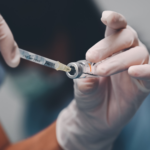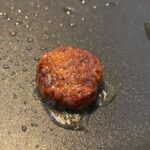Biosciences Area Senior Faculty Researcher Jay Keasling and his research team have spent the past few decades engineering yeast to be tiny factories that more efficiently produce molecules that are typically found in small supply in nature. Now, they have modified yeast to make the adjuvant QS-21, an important additive to vaccines that stimulates the … Read more »
Is Mold the Future of Food?
Chef-turned-bioengineer Vayu Hill-Maini is modifying the genes already present in fungi to create innovative new foods that are tasty, healthy, and more environmentally sustainable.
Jay Keasling Awarded Bakar Prize
Jay Keasling Awarded Bakar Prize to engineer bacteria to produce probiotics to treat skin diseases caused by the bacteria Staphylococcus aureus.
Taking Flight with Biofuels and Carbon Crops
A recent study by Joint BioEnergy Institute (JBEI) researchers reveals which crop-based feedstocks offer the greatest potential for a plentiful, cost-competitive, renewable alternative to petroleum-based jet fuel, while also maximizing atmospheric carbon removal.
Speeding up Biomanufacturing with a Turnkey Framework
Researchers from the Joint BioEnergy Institute (JBEI) developed a new framework that reduces the time of developing novel bioproducts. This new workflow, called Product Substrate Pairing (PSP), has already shown great promise for engineering strains that can convert common bacterial food sources into target molecules.
Was this page useful?








